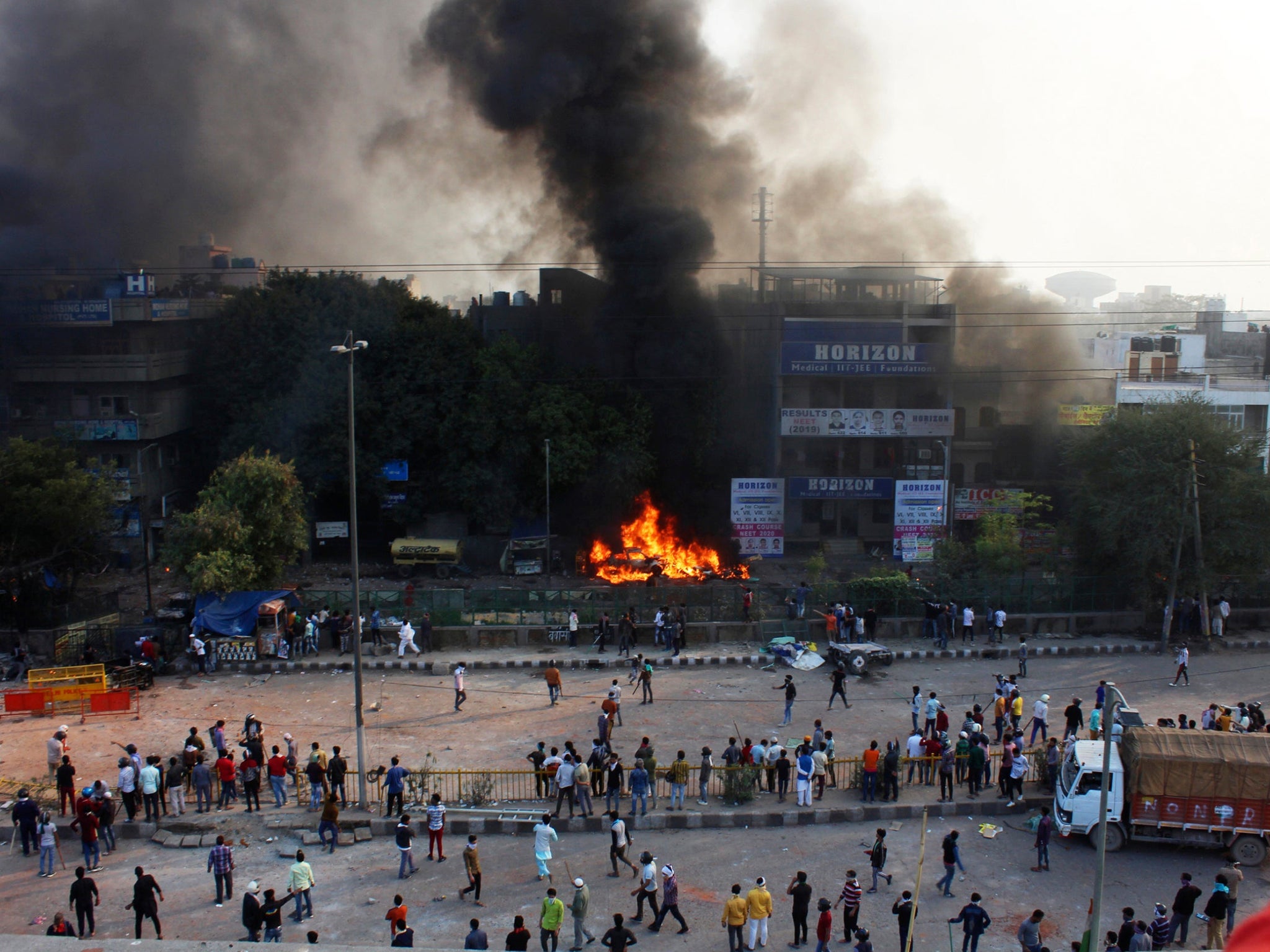Amnesty forced to shut down India operations after accounts frozen in government ‘witch-hunt'
The human rights organisation says allegations it has breached rules regarding foreign funding are ‘completely not true’

Amnesty International says it has been forced to close its India operations after the government froze its bank accounts, calling it a “witch-hunt” for the organisation’s human rights advocacy.
Amnesty India has been subjected to two years of “constant harassment by government agencies”, executive director Avinash Kumar said in a statement announcing the closure, which was decided by the group’s international board in the past few days.
The Indian government did not immediately confirm it had frozen Amnesty India’s accounts, but has in the past accused the charity of taking foreign donations in breach of strict laws surrounding the funding of non-governmental organisations.
The allegations were “completely not true”, Amnesty’s director of global issues Yamini Mishra told The Independent. In its statement, Amnesty India said it operates “through a distinct model of raising funds domestically”, backed with financial contributions by 100,000 Indians in the past eight years.
“Our accounts have been frozen in the past as well, and every time we’ve gone to the courts and got a favourable judgement,” Ms Mishra said. “We will fight [this] in court again, and we are hopeful.”
Amnesty has repeatedly raised concerns about the handling of the Kashmir region by Narendra Modi’s administration, including testifying to a US Congressional hearing, after the region was stripped of its statehood and special constitutional status.
And at the end of last month, Amnesty India released a lengthy report accusing the Delhi police of siding with Hindu mobs against Muslims and committing “serious human rights violations” during the February religious riots in the capital that killed at least 53 people.
The organisation was informed its accounts were being frozen less than two weeks later on 10 September, a move which means it has now been forced to let its entire Indian staff of 138 people go. Employees were invited to apply for roles elsewhere in the international organisation, but not all have been successful.
Julie Verhaar, the acting secretary general of Amnesty International, called the freezing of Amnesty India’s accounts an “egregious and shameful act” by the Indian government.
“It is a dismal day when a country of India's stature, a rising global power and a member of the UN Human Rights Council, with a constitution which commits to human rights and whose national human rights movements have influenced the world, so brazenly seeks to silence those who pursue accountability and justice,” she said in a statement.
Amnesty said it operates in more than 70 countries, with an incident in Russia in November 2016 the only other recent example when a local operation was briefly shuttered.
“In some countries we’ve had a more difficult ride – Russia has been mentioned, and in Turkey there have been challenges,” Ms Mishra said. “But as an Indian this is what is most telling to me - that India is now in the bracket of Russia and Turkey.
“It's just devastating for me to see how democratic freedoms and the civil society space have been clamped down. There’s a clear witch-hunt of anybody who disagrees with the government. It’s really worrying [for] the health and status of democracy in India.”
Amnesty and other NGOs have had run-ins with successive Indian governments, including those led by the more progressive Congress party that is now in opposition. Aakar Patel, a former head of Amnesty India, said this would be the fifth time the organisation has had to halt operations.
In 2009, its offices were shuttered to protest the rejection of its application for a licence to receive donations from overseas. India-based charities must apply to receive international donations under the Foreign Contribution Regulation Act, a law which has been used increasingly to stifle funding to civil society groups since 2014 when Mr Modi came to power.
In 2016, Amnesty India faced sedition charges after Hindu nationalists objected to an event held in the southern city of Bangalore to discuss human rights violations in Kashmir, where it was claimed anti-India slogans were chanted during the event. A court ordered the charges be dropped three years later.
In 2018, Indian financial authorities raided Amnesty’s Bangalore office and froze its bank accounts on similar charges of receiving foreign funds. The charity was only able to access them after an emergency intervention by the courts.
On social media on Tuesday, some mourned Amnesty’s India exit as a blow to democracy. Congress politician Shashi Tharoor wrote: “India's stature as a liberal democracy with free institutions, including media and civil society organisations, accounted for much of its soft power in the world. Actions like this both undermine our reputation as a democracy and vitiate our soft power.”
But supporters of the government celebrated, accusing the group of turning a blind eye to hate crimes against Hindus elsewhere in the region.
Amnesty vowed to continue advocating for human rights in India, albeit from outside the country.
“Now is the moment to show international solidarity,” Ms Mishra said, calling on those outside India to “go to the Indian embassy and sit in protest”. “We cannot quit India at a time when it needs such work the most,” she said.
Join our commenting forum
Join thought-provoking conversations, follow other Independent readers and see their replies
Comments
Bookmark popover
Removed from bookmarks